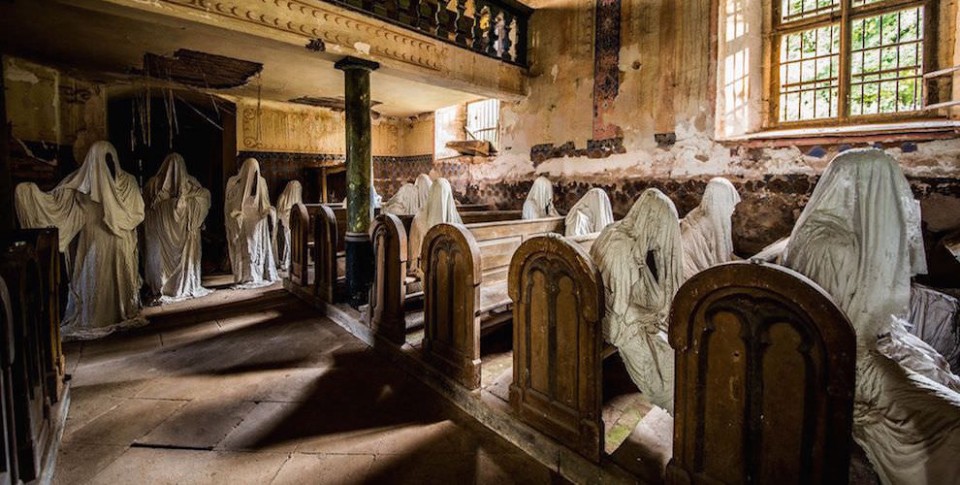For this week's journal I've chosen to focus pretty much entirely on Simultaneous submissions. Not multiple submissions, which is sending multiple submissions to the same journal (which few journals allow), but simultaneous submissions, specifically of the creative writing variety ie Poetry, Short Stories (fiction and non fiction) and even some hybrid forms. Just a quick note before I move on to those, here are a couple journals that do accept simultaneous submissions which I've been reading these past two weeks.
in their newest issue. Also
is a quirky journal I recently discovered that puts out some interesting work. In their words: "
publishes new literary work that breaks from the confines of mainstream realism to surprise, delight, and challenge readers. We seek writing that crosses boundaries of form, content, genre, and style — either subtly or radically. If you have something that’s weird and interesting and strangely powerful but don’t know who would publish such a thing, it’s exactly what we want to read". And finally
is an eclectic online journal that accepts no fee email submissions on a rolling basis. I especially liked
from the most recent issue. But now, onto the submission feature known as Simultaneous Submissions.
What are "Simultaneous Submissions"?
Simultaneous submissions" is the term used to describe the practice of sending your creative writing to more than one magazine or publisher at the same time. This is the industry standard, but it wasn't always the case, and there are a number of journals that will not accept simultaneous submissions, requiring submitted work to solely be submitted to them, and not sent out elsewhere until a rejection is received.
Why would a magazine not want simultaneous submissions?
With many journal/magazine acceptance rates under 3% and average response time around 6 months, it can seem like sending exclusive submissions could mean pieces would go unpublished for decades. And this actually would be the case were all journals to not accept simultaneous submissions—however, thankfully most have done away with the policy. For those that retain it, they do for a variety of reasons... som editors have been burned when they wrote to accept a piece of writing only to discover that it had been accepted at another journal months before they'd even read the piece, or had a series of pieces withdrawn at the point of acceptance or even discovered after-the-fact that it was published elsewhere. So that's why it is very, very important to maintain proper simultaneous submission etiquette.
What is proper simultaneous submission etiquette?
If a magazine/literary journal says they don't accept simultaneous submissions, DO NOT SEND SIMULTANEOUS SUBMISSIONS. Simple as that. However, in researching if they do accept simultaneous submissions, you will see that some journals accept them, but wish to know if a submission is exclusively submitted to them or if it is a simultaneous submission. If this is the case: mention that it is a simultaneous submission. See? Super simple.
What happens when a simultaneous submission is accepted?
If and when a piece that you have submitted to multiple journals is accepted at one, that very day sit down and send a note to each journal that the piece was also submitted to that it has been accepted elsewhere and is no longer available. Is there a perfect way to phrase it? Nope. But also, if the journal accepts SS's, they know the game and many journals will respond with a congratulations. I've only once been notified that that same poem was in the process of acceptance when I pulled it, but many times have been told that there is nothing to be 'sorry' for. In most literary magazine's guidelines it will say to email or make a note in the submittable submission's "note" section. If it doesn't say which they prefer, I opt for submittable if it is an option. Some journals won't have an option to add a note to the submission in the 'notes' tab, in which case you'll be finding an email address and sending them the notification.
That's where, what do I send?
If you're writing an email notification, mention the date of the submission and the submittable submission # (if it's submittable, you'll find that # in the submission's URL, it's the 8-digit number following "https://manager.submittable.com/user/submissions/" when you're in the submission)
, the title of the piece/s you're withdrawing, and be polite. That's about it. Let them know it's "been accepted elsewhere and is no longer available for first publication".
The Usual lists for your own submissions
Entropy Mag's list of where to submit is a great resource and while this is February's list, there' s a good amount of places that have rolling deadlines or aren't until sometime in March.
Zebulon's Flash Fiction Submission Guide. Yeah, I'll admit I referenced this, I put a lot of work into it, and though it's almost 5 years old and needs an update, there are a lot of smaller and lesser known journals I reminded myself with using this guide.
Duotrope. Always. A great search and browse function.
Submittable Discover Tab. Good for deadlines. There are a few March 15th deadlines and definitely some end of the month/April 1st ones to keep your eye on.
Poets & Writers Contest Calendar. If you've got a little extra scratch and want to enter some contests this is one of the best places to go. I used this a lot in January but overextended my submission budget a bit so I'm back to pacing out those $3 submissions.
New Pages Calls for submissions. New Pages is a tremendous resource, they have lots of supplemental information about hundreds of journals including lit mag reviews, which you don't see too many places.
In my research I've come across these 21 journals and 6 contests that are currently publishing which do not accept simultaneous submissions. Take a deep breath, and let's dive in!
No Simultaneous Submission Journals:
Comstock Review: This is one of the few long-lasting journals to not be housed by a university. They prefer more accessible/understandable poetry. In their words: "We choose our poems solely on the basis of what we consider to be their artistic merits. We are not swayed by long publishing histories. We do not publish single haiku, and rarely publish anything over two pages unless we find it exceptional and deserving of so much space. We are not afraid of the avant-garde, but shy from the overly obscure, the patently religious, and the needlessly graphic." And their editors 'appreciate': "Well crafted verse, either traditional or non-traditional; Consistency of metaphor; Refreshing, distinctive imagery and diction; Effective use of poetic devices and sonic qualities;Theme or approach that casts new light on the world and the human condition; and/or a poem that tickles your brain long after the page has turned."
Their 2020 deadline is fast approaching on April 1st and they do not charge a submission fee.
 december: This is another of the rare long-running non-university journals, and they've gone through many changes since 1958, but they're still going strong! They charge a $2.50 submission fee for non-subscribers, but subscribers can submit for free so there's that extra reason to subscribe.
december: This is another of the rare long-running non-university journals, and they've gone through many changes since 1958, but they're still going strong! They charge a $2.50 submission fee for non-subscribers, but subscribers can submit for free so there's that extra reason to subscribe.
Eunoia Review: I mentioned them in the last Journal Submission Journal, but they are an online journal from Indonesia that eschews periodic issues and instead posts new pieces every day, similar to a couple other venues on this list. They are the fastest replying market on Duotrope, so your pieces won't be tied up there for weeks and months. They almost always reply within 2 days. Pop over to the journal and read some of the work they publish.
Everyday Fiction: Everyday Fiction publishes flash pieces, well, every day. Submit up to 3 pieces of flash fiction and allow up to 3 months for a response. Because they publish pieces every day, their acceptance rate is a little higher than some journals earning them a place on Duotrope's 25 most approachable fiction markets.
Flash Fiction Online: I highly recommend anyone thinking of submitting of course first read the journal, but also read this interview with the editor. When asked the best advice they could give potential submitters they responded: "Read the guidelines. Read the guidelines. Read the guidelines. As I was raising my children I discovered that if I told them to do something three times, it would increase the probability of them actually remembering to do it. So there you go." So READ THE GUIDELINES. I feel like I shouldn't even give any more info. Just go read the guidelines and read the journal. They do accept submissions in multiple genres.
Hudson Review: This storied journal's continuous publication goes all the way back to 1948. One of the best journals out there, and dadgummit, no simultaneous submissions allowed. In fact, they only allow fiction submissions online, poetry is done analog.
 The Nation: This one isn't even a literary journal! It's just an awesome, super high circulation politics and culture magazine. They publish very high profile poets and unknowns alike. Typically their audience is educated but not necessarily super into poetry—so they publish a wide variety. Submit up to 3 poems at a time, and only submit twice a year.
The Nation: This one isn't even a literary journal! It's just an awesome, super high circulation politics and culture magazine. They publish very high profile poets and unknowns alike. Typically their audience is educated but not necessarily super into poetry—so they publish a wide variety. Submit up to 3 poems at a time, and only submit twice a year.
North Dakota Quarterly: This literary journal out of the University of North Dakota is pretty eclectic but leans a little toward accessible. In their words "No preference with regard to form, style, as long as the content isn't lame and the language works" and "Editors enjoy everything from Sappho to Mayakovsky, from Dante to Anzaldúa."
Prairie Schooner: This is another well-known journal out of the University of Nebraska that is often featured in year-end 'best ofs'. They don't charge a submission fee but take a regular submission period of around 3 months to respond, and their deadline is May 1st.
(Their website is currently hacked) Straylight: This is University of Wisconsin-Parkside's literary journal. They have both an online and a print component. They reply in an average journal's reading time of around 3 months. I really like their aesthetic which is accessible but a little elevated. Granted, I've been published there a number of times so I am probably a bit biased, but I dig them.
Threepenny Review: I feel like I'm repeating myself, but a lot of the journals/magazines on this list can afford to demand no simultaneous submissions and still get tons of submissions from quality writers because they are prestigious. Threepenny Review is no exception there, again being often picked for year end best of anthologies. They pay top dollar for publication ($400 for fiction, $200 for poetry) and also are one of the fastest responders on duotrope. I know I almost always get my response within two days. And their acceptance rate is under .1% so don't be surprised if your best pieces aren't able to make it through their slushpile, but we're here to dream and live, aren't we?
Science Fiction/Fantasy specific publications:
(special note): Many of the journals here want a very specific type of manuscript formatting from a bygone era called Shunn formatting named after the dude that codified it. Here's a link to the document that explains all the details. There are a number of particulars so spend some time going over this so you get everything right.
Analog Science Fiction: Consider by many to be the magazine where science fiction grew up Analog has been publishing since the 1930s.
Asimov's Science Fiction: If Analog is where science fiction grew up, Asimov's is where it's at right now... as well. I mean, Analog, Asimov's, Clarkesworld and F&SF are all on the same super high tier of sci-fi/fantasy journals. They're all a bit different though, so be sure to read the guidelines and the magazines.
Clarkesworld Magazine: Another one of the most award-winning magazines in the genre, they only publish prose and only a very small percentage of the pieces submitted. On the
submission guidelines they have a nice long list of hard sells for their magazine that you should definitely read before submitting.
 Daily Science Fiction
Daily Science Fiction: This journal publishes daily flash fiction pieces of the science fiction variety every weekday. They pay $.08 a word and accept stories up to 1500 words long. Check out
their stories.
Check out their guidelines. Make it happen today!
The Magazine of Fantasy & Science Fiction: F&SF is another great longstanding journal of the genre. They publish fiction of all lengths, up to 15,000 words. In their words: "We have no formula for fiction. We are looking for stories that will appeal to science fiction and fantasy readers. The SF element may be slight, but it should be present. We prefer character-oriented stories. We receive a lot of fantasy fiction, but never enough science fiction or humor."
Strange Horizons: One of the few long-standing venues for science fiction poetry, Strange Horizons publishes fiction, poetry, art, nonfiction and reviews "of works of speculative and SF/F art and entertainment—especially books, films, games, and other similar media" every month going back to 2000.
Snail mail only No SS journals:
Epoch: This is Cornell's lauded journal that is frequently featured in the year-end 'best of' anthologies. They publish both fiction and poetry, but only accept paper submissions. Also, they're currently closed due to Covid-19 and will open again for submissions in the fall, which is a bummer because I'd gone through all the hassle of making 2 submissions there (they allow multiple submissions, just no simultaneous) and got my SASEs with a note saying they were rejected unread.
 Conjunctions
Conjunctions: This is Bard College's journal that has numerous times topped the 'rankings' of Pushcart Prize and Best Americans. They frequently publish themed issues so be sure to check their website for any specific submission calls.
Antioch Review: This is another very highly regarded journal, and while they don't technically outlaw simultaneous submissions, they "strongly discourage" the practice. Soooo, ideally you'd consider them NOSS, but if you slip up or have a piece you have out elsewhere and just
have to send to
AR, you can do it. Just, you know, they strongly discourage it.
The Sun: This general interest magazine publishes family friendly, but quality poetry. Seriously good stuff. They also are in the whole 'year-end best of' anthologies often. Like Antioch Review, they "Strongly discourage" simultaneous submissions.
Hudson Review: They accept only fiction online, so if you want to send them a no simultaneous submission of poetry, you gotta do it through the mail.
Contests:
 Comstock Review Muriel Craft Bailey Poetry Contest
Comstock Review Muriel Craft Bailey Poetry Contest: Entry fee $27.50 for 5 poems of no more than 40 lines (not counting stanza breaks). Prizes $1000/$250/$100.
July 15th deadline.
Common Ground Review Poetry Contest: Entry fee $15 for 1-3 poems. Prizes $500/200/100.
April 10th deadline.
North American Review's James Hearst Poetry Prize: Entry Fee $23 for up to 5 poems. Prize $500. All entries get a copy of the issue containing the prize winner, so you at least get a consolation prize of a good journal for entering.
November 15th deadline.
North American Review's Terry Tempest Williams Prize for Creative Nonfiction: Entry fee $23 for one piece of nonfiction up to 30 pages. Prize $500. All entries get a copy of the issue containing the prize winner, so you at least get a consolation prize of a good journal for entering.
April 1st deadline.
december's Curt Johnson Prose Award for fiction, and nonfiction: Entry fee: $20 for one prose piece of up to 8000 words. Prize $1500/$500 in each genre.
May 1st deadline.
The Steve Kowit Poetry Prize is presented by San Diego Entertainment & Arts Guild, with the winners being published in the
San Diego Poetry Annual. The entry fee is $15 for a single poem, and the prizes are $1000/250/100. The deadline is
October 15th.
*
I'd love to hear other journals you fine folks have found recently, or are your favorites too! And if this post or my blog in general has been helpful, I'd really appreciate any donations you might be able to spare.

























